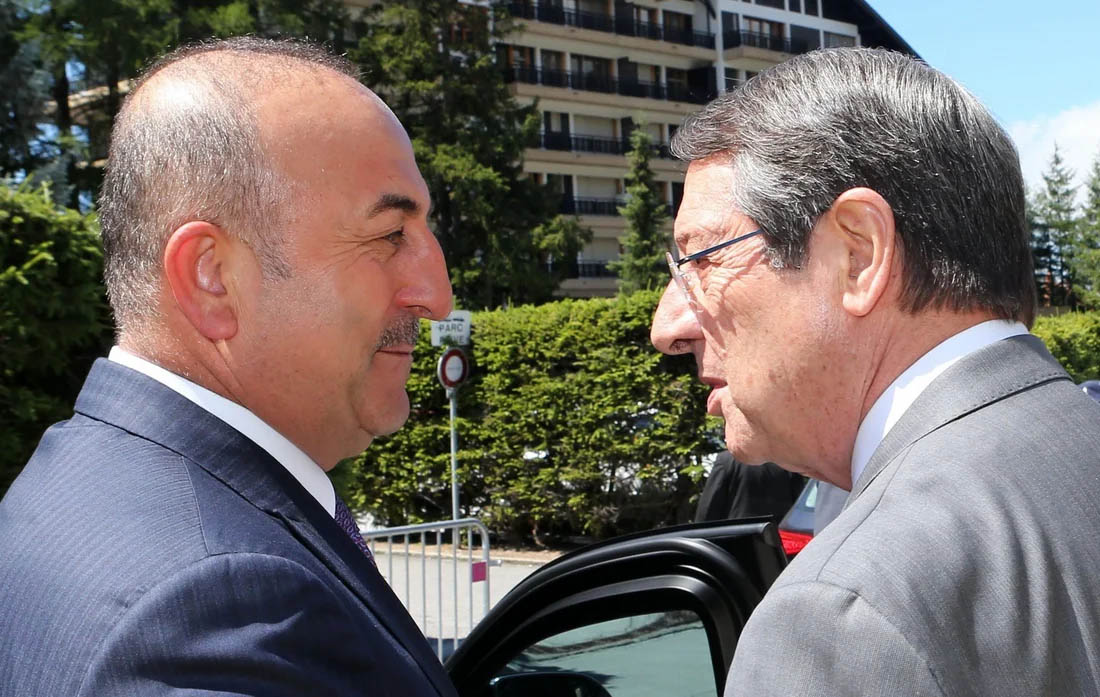The surrender of sovereignty over the whole of Cyprus is an existential obstacle that no Greek Cypriot leader could surmount
In his traditional Christmas homily Archbishop Georgios of Cyprus expressed the widely held belief amongst Greek Cypriots that the RoC should pursue a solution to the Cyprob by reframing the plight of Cyprus as one of invasion and occupation.
It is code for rejecting the guidelines contained in the 1977 High Level Agreements between Archbishop Makarios and Rauf Denktash in which the leaders of the two communities in Cyprus agreed to seek an independent bicommunal, non-aligned federal republic.
The federal republic was to comprise two distinct administrative entities with a central federal government that preserved the unity of the island in which the rights to property, settlement and movement were to be discussed in light of the fundamental basis of a bicommunal federal system.
Non-alignment is no longer a major concern and Nato membership is not excluded as a possibility by the RoC, which is unwise as big powers like Russia that regard Nato as their enemy will strive to ensure it does not happen by sowing conflict between Greeks and Turks.
The current Turkish Cypriot leadership rejects the 1977 High Level Agreements despite the fact they were entered into by Rauf Denktash. The RoC government is lukewarm on a federal republic, but it agrees to it as a basis for negotiation whereas the Turkish Cypriot leader Ersin Tatar jettisoned the federal model completely and decided to plump for a two state solution after the failure of the last round of talks at Crans-Montana in 2017.
In 1983 the Turkish Cypriots declared independence unilaterally (UDI) as the “Turkish Republic of Northern Cyprus (TRNC)” which the UN Security Council ruled was unlawful. Unlike the present insistence on a two-state demand, UDI did not prevent the Turkish Cypriot side from seeking a federal solution as there was nothing to prevent the “TRNC” reconstituting itself as a constituent state of a federal republic. And the Turkish Cypriots voted in favour of the 2004 UN-EU federal plan and came close an overall federal agreement in 2017 and a federal republic is in principle flexible enough to accommodate diverse concerns.
The demand for two states by the Turkish side and reframing the Cyprob as one of invasion and occupation by the Greek Cypriot church are sides of the same coin in that both reject the consensus behind the 1977 High Level Agreements. Two states is separatist partition, which is unlawful and reversal of the consequences of invasion and occupation is a return of the status quo ante – the way things stood before 1974
The Turkish side totally rejects a return to the status quo ante as it was a time when so far as Turkish Cypriots are concerned they were confined in enclaves. On the other side the Turkish leadership must know that it is impossible for any Greek Cypriot leader to accept two states as it involves surrender of RoC sovereignty over the island of Cyprus.
The two polarities are as absurd as they are disrespectful to the other community. The current state of affairs is that whereas the RoC government recognises that a return to the status quo ante is not possible, the Turkish side is oblivious to the fact that two states is not possible without the consent of RoC and that such consent is impossible for any Greek Cypriot leader to contemplate.
There will be “presidential” elections in the “TRNC” at the end of 2025. The functions of the “president” under the constitution of the “TRNC” are mostly honorific except that he or she is in charge of the conduct of policy on the Cyprob. This means that when Turkish Cypriots vote later this year they will be choosing between a possible federal solution or an impossible two-state way ahead.
It looks as though the incumbent Ersin Tatar will campaign in favour of two states even though there is no real prospect of recognition. It will then be up to the Turkish Cypriot electorate to decide whether or not to give him a further 5 years in the hopeless pursuit of two states or revert to seeking a federal republic.
As always the stance taken by Turkey will be crucial. President Erdogan now favours two states but his views on the Cyprob are not set in stone, and he is known to be pragmatic and can see that the RoC is dead against two states in Cyprus just like Turkey is dead against two states in Syria.
Besides he had previously supported a federal solution for many years before the debacle at Crans-Montana. He came round to supporting two states after Crans-Montana in which foreign minister Melvut Cavusoglu came away with the impression that the Greek Cypriot side was not averse to a two-state solution to the Cyprob.
Nothing could be further from the truth. The surrender of sovereignty over the whole island of Cyprus is an existential obstacle that no Greek Cypriot leader could surmount and survive a single day in power. Greek Cypriots identify with Cyprus as a single geopolitical entity which they think of in their collective subconscious as their homeland going back generations.
This is why the impression Nicos Anastasiades gave Cavusoglu that the Greek Cypriot side was prepared to surrender RoC sovereignty over the whole island of Cyprus must have been a misunderstanding. Giving Anastasiades the benefit of the doubt perhaps he was, as he claims, insisting on a loose federation of two constituent states rather than that he favoured two states.
I must of course declare an interest in the views I expressed in favour of a federal republic in that my late mother was Greek Cypriot and my father Turkish Cypriot and I am obviously dead against two states.
Alper Ali Riza is a king’s consul in the UK and a former part time judge






Click here to change your cookie preferences